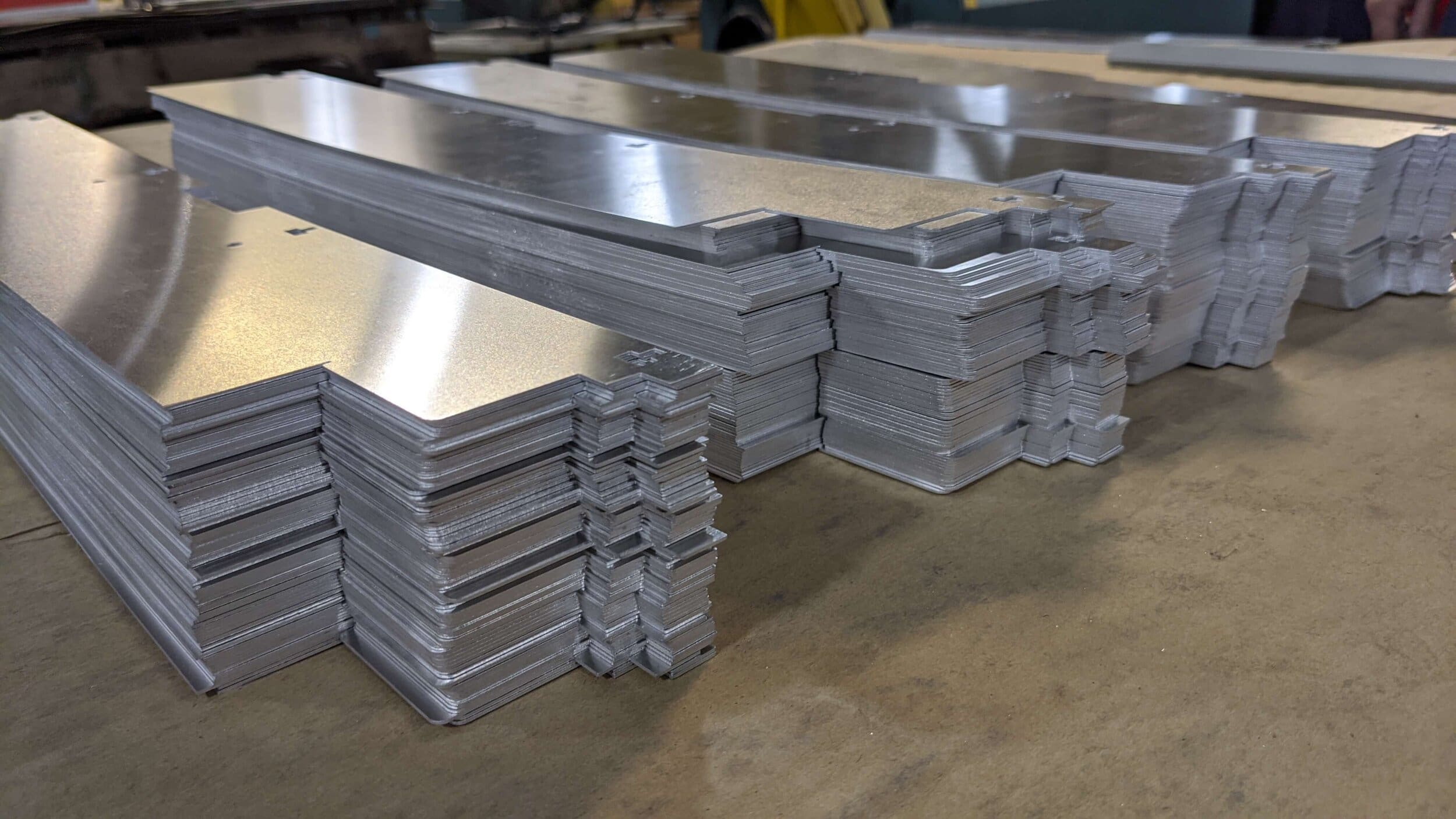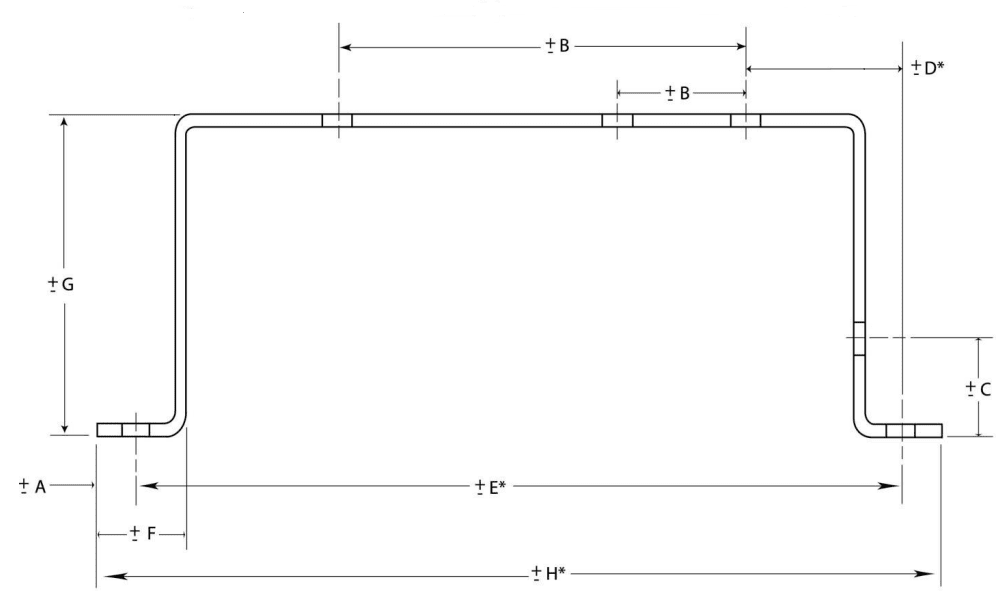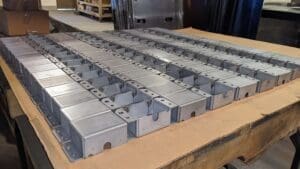Last updated on July 1st, 2024 at 10:32 am
 If you’re new to designing parts for precision sheet metal fabrication, choosing the best material for your part can be daunting.
If you’re new to designing parts for precision sheet metal fabrication, choosing the best material for your part can be daunting.
In addition to selecting the material itself, you need to pick the optimal thickness. The gauge that may instinctively look or feel right isn’t always the best option—there are many factors that go into choosing the right material thickness for sheet metal parts.
Not to worry! Our expert fabricators are here to help you determine which gauge is ideal for your next project.
Table of Contents
- 1 Gauge Thickness Varies from Metal to Metal
- 2 Certain Material Gauges Can Be Difficult to Source
- 3 Approved Sheet Metal’s Standard In-Stock Material Thicknesses
- 4 Recommended Default Sheet Metal Tolerances
- 5 Metal Fabrication Material Thickness FAQ
- 5.0.1 How does gauge thickness vary across different materials in precision sheet metal fabrication?
- 5.0.2 What issues might arise if the precise material gauge isn't considered in a design, particularly in components requiring a precise fit?
- 5.0.3 Are there challenges in sourcing specific material gauges for fabrication projects?
- 5.0.4 What does Approved Sheet Metal offer in terms of standard in-stock material thicknesses for aluminum, steel, and stainless steel fabrication?
- 5.0.5 How can I ensure the material gauge I need is readily available without causing delays in my fabrication project?
Gauge Thickness Varies from Metal to Metal
The gauge size of a piece of material tells you the thickness of the metal. What’s confusing is that the precise thickness of a gauge can vary slightly from one material to the next.
A classic example is aluminum vs. stainless steel.
16 gauge is a common size for aluminum. So what would happen if you swapped 16 gauge aluminum for 16 gauge steel? Let’s take a look. . .
16 gauge aluminum is 0.062” thick, whereas 16 gauge steel is actually 0.059” thick. The 0.003” difference in thickness may not seem significant, but depending on your design, that variation can cause big problems in your final product. For example, components that need to fit inside one another—such as a box with a cover—may not fit precisely enough, or at all, if the exact material thickness isn’t taken into account.
The higher the gauge number, the thinner the material—and the more significant discrepancies in thickness become. That’s why it’s always important to check the thickness of the gauge for the material you want to use. Even tiny variations in thickness can lead to a tolerance stack-up and cause your part to malfunction.
Certain Material Gauges Can Be Difficult to Source
When choosing the gauge of your material, you may first want to consult with us to find out if that size is readily available. Requesting a material with an unusual thickness can add to your project’s lead time—and in many cases, an in-stock alternative will work just as well.
If we spot a particular material gauge in your design that we know will be difficult to source, we’ll always let you know right away. Often, designers are unaware that a certain thickness is uncommon and are pleased to learn that we can easily provide a comparable substitution. In these cases, we’ll work with you to update your model at no additional cost.
Of course, we’re happy to source specialty materials if you need them—we’ll always go the extra mile for our customers. We just like to be transparent that choosing a material in a non-standard gauge may increase your cost and lead time.
Also, keep in mind that just because a particular gauge size is technically available doesn’t mean your sheet metal fabrication shop will always have it in stock. When possible, use materials you are certain your manufacturer has on hand or can source quickly.
Approved Sheet Metal’s Standard In-Stock Material Thicknesses
To make life easier for our customers, we're sharing the list below to clarify the standard material thicknesses we keep in stock for aluminum, steel, and stainless steel fabrication.
| Standard Sheet Sizes | Aluminum | CRS, Stainless Steel, Galvanneal and Galvanized |
|---|---|---|
| 48 x 40 | .020 | .018 |
| 120 x 48 | .032 | .024 |
| 120 x 60 | .040 | .030 |
| .050 | .036 | |
| .062 | .048 | |
| .080 | .059 | |
| .093 | .074 | |
| .100 | .089 | |
| .125 | .104 | |
| .190 | .119 | |
| .250 | .134 | |
| .179 | ||
| .250 | ||
| .375 |
Feel free to call or email us any time with questions about material thickness or anything else relating to sheet metal fabrication! Better yet, request a quote!





